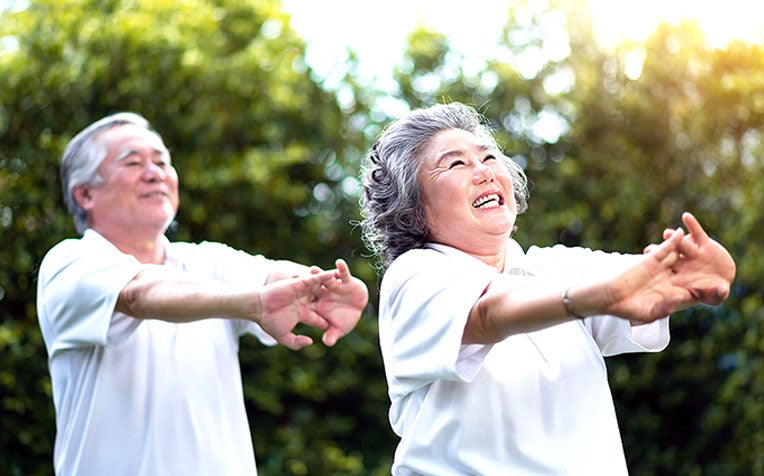
Exercising regularly with family or friends is one easy way to prevent depression in the elderly (also known as geriatric depression).
Geriatric depression is a mental and emotional disorder affecting older adults aged 65 years and over.
"According to the Well-being of the Singapore Elderly (WiSE) study conducted by the Institute of Mental Health, the prevalence of depression among the elderly (also known as geriatric depression) in Singapore is around 5.5%," shared the Department of Psychiatry from Sengkang General Hospital (SKH), a member of the SingHealth group.
"Feelings of sadness and occasional ‘blue’ moods are normal. However, pervasive low mood is not a normal consequence of aging. Depression can impact quality of life and increases the risk of suicide if left untreated. Late life depression is associated with an increased risk of subsequently developing dementia," she added.
7 Easy ways to prevent geriatric depression (elderly depression)
If you are depressed, you may not feel like doing anything or seeing anybody. But isolation only makes depression worse, so you should limit the time you spend alone and try to connect with others.
1. Engage in meaningful social activities
Join a senior activity group; it can help to reduce feelings of isolation.
2. Engage in gentle physical exercise (e.g. walking, yoga, tai chi)
Group exercise programs prevent isolation and functional decline.
3. Get some sunshine
Don’t just stay at home all the time. Getting outside in the sun can brighten the mood.
4. Find a new hobby or interest
Consider taking care of a pet. They can provide great companionship for the elderly and reduce feelings of loneliness.
5. Eat a well-balanced diet
Eating healthy is important for mental health. Include plenty of fruits, vegetables and healthy protein and limit highly processed foods. A healthy, well-balanced diet can help you feel more energetic and think clearly.
6. Get enough sleep
Poor sleep can make depression worse. A better quality of sleep can be achieved by avoiding alcohol and caffeine, keeping a regular sleep-wake schedule and making sure your bedroom is dark, quiet and cool.
7. Effective treatment starts with early detection
You can take a simple screening directly on your mobile phone to test for symptoms of depression, using the SingHealth Health Buddy app (click here to learn more about Health Buddy's "Senior Wellness" function). There, you will also find simple strategies to cope with early symptoms.
Treatment is available for depression. The two main forms of treatments include medication and talking therapy. So, talk to your doctor about your concerns and seek help early.
Common risk factors for geriatric depression (elderly depression)
Biological, social and psychological risk factors all play a role in depression in older adults.
a) Biological risk factors
Female gender
Family history of depression
Previous history of depression
Chronic physical illnesses, presence of chronic pain
Physical disability
Cognitive impairment
b) Psychosocial risk factors
Single / widowed / divorced
Social isolation
Lack of supportive social network
Lower socioeconomic status
Stressful / traumatic life events (e.g. abuse or death of loved one)
Common symptoms of geriatric depression (elderly depression)
Sadness
Crying spells
Feelings of worthlessness / helplessness
Sleep problems
Changes in appetite
Grumpiness / irritability
Fatigue
Lack of concentration
Avoidance of people
Loss of interest in hobbies or things that once brought joy
Unexplained body aches and pains
Memory problems
Where to go for help
Don't choose to suffer in silence. Help is just a phone call away!

Ref: J22
Contributed by
















 Get it on Google Play
Get it on Google Play